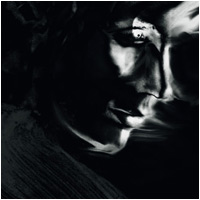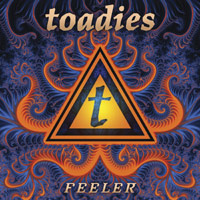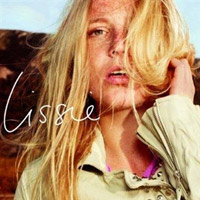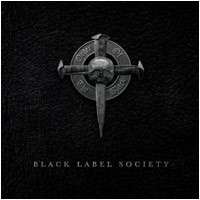
Black City
Ghostly International
I bet no one had any idea this record would be so great. Matthew Dear’s previous work has certainly been interesting, but hardly indicative that he was capable of producing an album as cohesive and innovative as Black City. What he’s accomplished is not unheard of, but it’s certainly unusual that anyone is able to write music that’s almost as grounded in songwriting as it is in unfaltering rhythm and dynamic and progressive production. At this point, one name inevitably comes to mind, and in fact it would be near-impossible to discuss Black City without making multiple references to the work of Mr. Brian Eno.
There’s Eno’s Berlin-era work with Bowie all over “Little People (Black City)” and the creepy, bio-future paean “More Surgery.” There’s the sound of new and old David Byrne collaborations in the slithering basslines and jam-packed percussion tracks of “Shortwave.” And “Gem” brilliantly channels the second-half of Before and After Science, Eno’s last solo rock opus of the ’70s.
Which is not to say that Mr. Dear is a one-reference pony. He fills the corners with unexpectedly sexy dance-music sensibilities, manages to evoke J. Dilla (or maybe Timbaland) on “I Can't Feel,” and even finds room for a real sense of humor (something Eno has only occasionally made a priority) on “Slowdance.”
All of this would be moot, of course, if the record wasn’t so excellent. Moreover, it’s far more than the sum of its pedigrees. It’s a unique experience that envelopes the listener, creating a very specific sense of time and place and expressing a compelling and previously unheard notion. Suddenly, Matthew Dear has acquired the ability to take total control of your stereo, not to mention your head, and for the 48 minutes of Black City, it’s a very welcome discovery.
Matt Slaybaugh
MP3: “Soil to Seed”

Alive As You Are
Dangerbird
Darker My Love is an LA-based band which, over the course of five years, two albums and an EP, has made psychedelic-tinged indie rock its calling card. During that time vocalist and guitarist Tim Presley and bassist and vocalist Rob Barbato became members of the Reformation Post TLC–edition of the Fall. With those types of references in place, it seems pretty obvious as to what’s in store on their latest album, Alive As You Are.
If “psychedelic” means face-melting and mind-warping guitar work combined with spacey jams, and working with the venerable Mark E. Smith hints at a love for Biblical levels of hard drone grooves, then perhaps someone should get the men of Darker My Love a new dictionary. Alive As You Are is less Hawkwind and more K-Tel’s Sounds Of The ’60s! The record is a take on the classic California pop sound mixed with healthy portions of traditional country styling, which sound a lot like the Grateful Dead if they were more focused. That (perhaps) unintentional Garcia love, is leveled with smart tips of the hat to the later wave of the British Invasion. Take the fuzzed-out guitar and bass work that anchor “18th Street.” While Barbato locks into a menacing groove and guitarist Jared Everett delivers waves of snarls, squeals and the occasional drone line, Presley voice floats over the top. And while Beatles comparisons are usually completely meaningless, what else can be said when a song like “New America” that is cut almost whole from the DNA of “Because?”
Alive As You Are should theoretically be dismissed simply for walking line between showing some influences and walking around in another band’s clothes. What saves the Darker My Love is pure craftsmanship. It may be the lighter side of psychedelic, but it’s still a potent dose.
Dorian S. Ham

Feeler
Kirtland
From karaoke bars to dorm rooms, “Possum Kingdom” will endure as a scream-a-long staple as long as there are still young men with a taste for cheap beer and a tendency toward the dramatic. But like so many other ’90s one-hit wonders, the Toadies have failed to reproduce the success of that monumental single. Their latest record, Feeler, has all the same elements that made the band one of the most recognizable names of the fleeting post-grunge scene: crunchy guitars, strange time signatures that still manage to rock, and vocals that shift from a syrupy croon to a throat-shredding wail at the drop of a hat. But it’ll take more than that to make post-grunge relevant in 2010, and Feeler lacks the hooks and lyrics to pull off that unlikely feat.
“Possum Kingdom” showed that one of the Toadies’ greatest strengths was their ability to arrange a few single components into something greater than the sum of its parts, and opener “Trust Game” is further proof of this. “City of Hate” is another highlight, turning a meandering guitar riff into a pleasing, foot-stomping groove. In fact, the only outright bad song is the brain-dead rocker “Dead Boy.” But unfortunately, nothing on the record is catchy or memorable enough to sound like anything more than above-average filler on a Better Than Ezra album. The only distinction held by Feeler is that these songs would kill on the new Stone Temple Pilots record and, truth be told, the Toadies should’ve probably sold the songs to Scott Weiland’s group so both bands could have escaped with a bit more dignity.
David Holmes

Catching a Tiger
Fat Possum
Elisabeth Maurus, a.k.a. Lissie, is an American-born folksinger, who, for a relatively unknown artist, has quite a notable resume: touring in support of Lenny Kravitz in 2008 and collaborating with DJ Harry on the dance tune “Collision,” which was an instant sensation in the television world, having been featured on everything from The OC to House. But even with all these accolades, it is only recently (in 2009 with the well received Why You Runnin’ EP) that Lissie began to gain steam as a solo artist. Now she is back and hoping to win audiences over with her debut full-length, Catching a Tiger.
The first component that jumps out on this album is Lissie’s voice. While generally considered a folksinger, she has a uniquely strong voice that has more in common with those of the enchanting Florence Welch or the effortlessly cool Stevie Nicks as opposed to the typical breathy and uncertain intonations of other folk ingenues. And her self-assuredness is apparent not only in the vocals, but in the musical arrangements as well.
The album begins with the candid and catchy “Record Collector,” which is sure to appeal to any female with mild inner confusion. And though many of these tracks have a definite down-home country influence, especially the sing-songy “Little Lovin’” and the piano-driven closer, “Oh Mississippi,” much of the record is esconsed in production-heavy pop. In this way, Lissie blurs the lines between folk and pop, relying on her delightful charm, effervescent voice and relatable lyrics than adherence to a specific genre. Tiger seems likely to appeal to a new fanbase, and if not, at least she's accumulated more savoir faire for her resume.
Jennifer Farmer

Order of the Black
E1
For most fans of metal, Zakk Wylde is an MVP. As a longtime member of Ozzy Osbourne’s band, he kept the Prince of Darkness on the straight and narrow path of rock. No matter how silly things got in the Osbourne universe, you always knew that when it came to the stage Wylde would make sure that Ozzy delivered. But Wylde is more than just a faithful sideman. After a brief stint fronting Pride and Glory, he launched the Black Label Society in 1998. Now after eight albums and his recent departure from Osbourne’s band, Wylde is back with Black Label Society’s latest, Order of the Black.
When you’re best known as member of someone else’s band, it can be difficult to form your own identity. For example, as great a guitar player as Slash is, no one cares about the Snakepit. Wylde has avoided that curse by not just playing the guitar-slinger role, but stepping up and becoming a credible frontman. And Black Label Society is essentially a one-man operation, with Wilde playing every instrument on the band’s recordings except drums. That type of virtuosity doesn’t matter a bit if you can’t deliver, and in that respect Wylde has been the musical equivalent of a UPS truck. Order of the Black is no exception.
Black Label Society appeals to those who like their metal with no prefixes and their rock as hard as an Alaskan lake in January. There’s nothing hip or trendy about the records they make, but it’s that no-nonsense approach that makes Black Label Society so appealing. Order of the Black continues in that tradition. Are there enough guitars and face-melting solos to fuel air-guitar competitions for the next decade? You bet, but it isn’t just flash riffing. These are actual proper songs, and Wylde isn’t afraid to slow things down so that listeners can raise some lighters in the air. That’s right, the hard-living guitar maniac gets his power ballad on not once, but three times. Then there are the unexpected moments of humor like the Michigan J. Frog “Hello My Baby” outro to “Overlord” and the 50-second Spanish guitar instrumental “Chupacabra.” Awesome. If your rock isn’t as hard as you’d like it, it may be time to get it on this order.
Dorian S. Ham
ALBUM REVIEWS
Camu Tao, King of Hearts
Autolux, Transit Transit
Los Lobos, Tin Can Trust
The Budos Band, The Budos Band III
El-P, Weareallgoingtoburnin- hellmegamixxx3
Wavves, King of the Beach
Leif Vollebekk, Inland
The Kyle Sowashes, Nobody
Kylie Minogue, Aphrodite
Dan Sartain, Lives
Danzig, Deth Red Sabaoth
K-X-P, K-X-P
Jaill, That's How We Burn
Francis and the Lights, It'll Be Better
